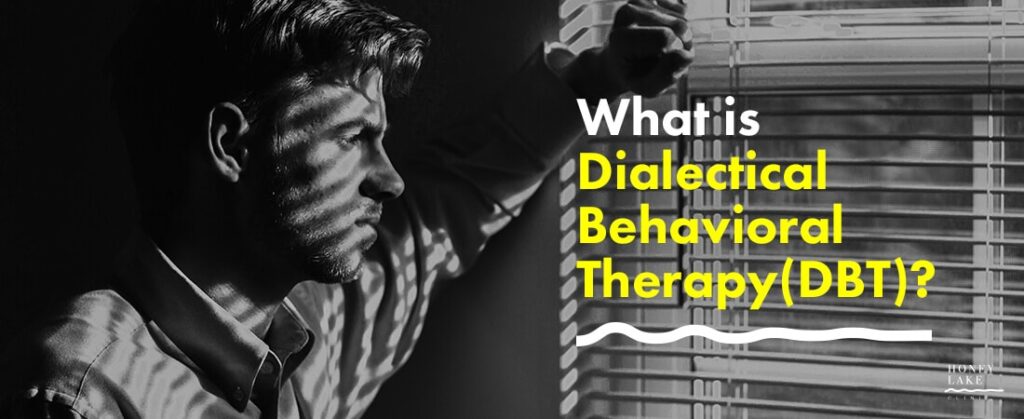What is Dialectical Behavioral Therapy (DBT)?
Dialectical behavior therapy (DBT) is a specific type of psychotherapy—or talk therapy—that utilizes a cognitive-behavioral approach. It is often employed to help people regulate emotions.
DBT was originally designed to help people with borderline personality disorder but is now used to treat a wide range of concerns, including eating disorders, self-harm and Post Traumatic Stress Disorder (PTSD).
By focusing on the emotional and social aspects of how you interact with others in different environments and relationships, you’re able to gain new skills to help you take personal responsibility for and to change unhealthy or disruptive behavior patterns in your life.
How Does DBT Work?
DBT focuses on the psychosocial aspects of our interactions with others. The theory behind this approach is that some people are prone to react in a more intense and out-of-the-ordinary manner toward certain emotional situations, primarily those found in romantic, family and friend relationships. This can result in emotional swings such as extreme anger.
Through DBT, you can learn necessary skills to cope with these emotional swings in a more effective manner. It’s also been quite helpful for people struggling to accept situations and circumstances in life which cannot be changed.
As with many other forms of talk therapy, it takes time and effort to enjoy the benefits of DBT skills. But once clients master these skills with support from a therapist, they often find these new skills and strategies become second nature—tools that last a lifetime.
What Goes Into DBT?
Dialectical behavior therapy skills for emotion regulation include things like:
- Learning to properly identify and label emotions
- Identifying obstacles to changing emotions
- Reducing vulnerability to “emotion mind”
- Increasing positive emotional events
- Increasing mindfulness to current emotions
- Taking opposite action
- Applying distress tolerance techniques
DBT has two main components: individual sessions and also group sessions.
Individual psychotherapy sessions emphasize problem-solving behavior related to the issues and troubles in your life. If you’re struggling with any self-injurious and suicidal behaviors they will take first priority, followed by behaviors that may interfere with the therapy process.
During these sessions, your therapist will work on helping you develop adaptive methods to manage your emotions as well as improving your basic social skills.
Group therapy sessions led by a qualified and experienced therapist afford opportunities to put the methods and skills gathered in individual sessions to work in a supportive environment.
This is a lot to process. We can help you understand what’s right for you.
Whether dialectical behavior therapy is right for you is a determination best made in conjunction with an experienced therapist or mental health professional. DBT has been proven to help with a wide range of mental health concerns. Perhaps it can help you.
At Honey Lake Clinic, DBT is one of many therapeutic approaches our team of licensed and experienced medical and mental health professionals may incorporate as a part of an overall treatment program to help you find renewed health and happiness.



